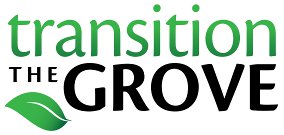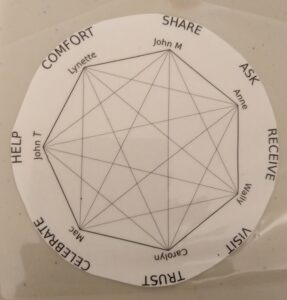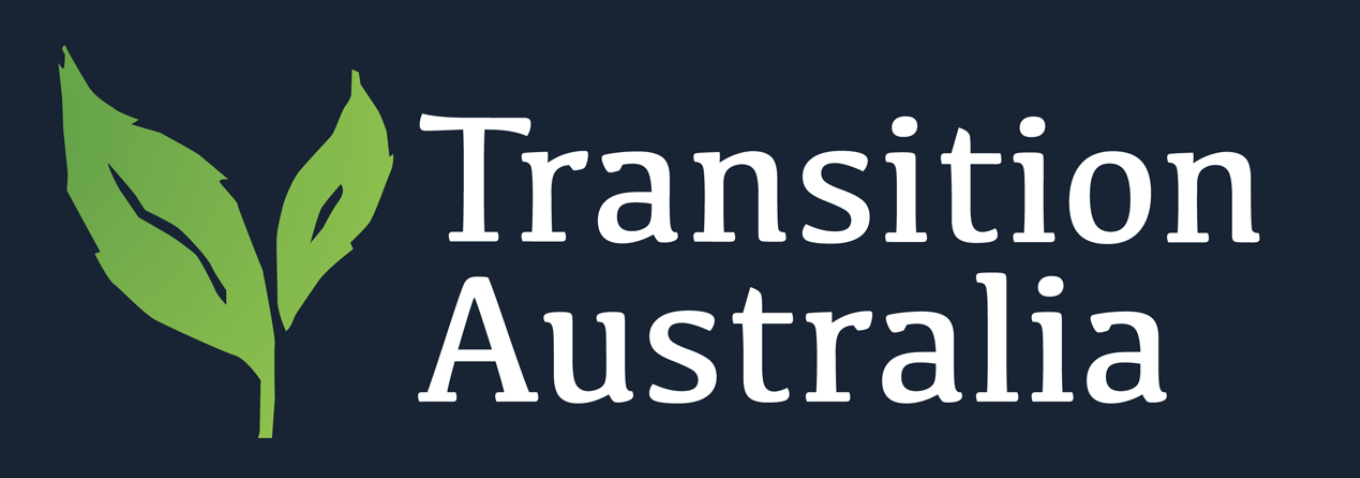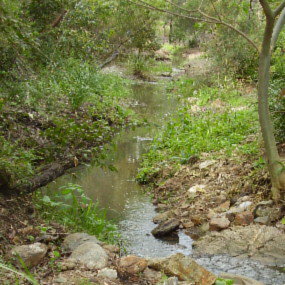Transition The Grove Inc in Brisbane started in 2010, during the early days of the Transition movement in Australia. Here is a story of how the group has changed over time and still survives. A story of the value of a small group that focuses on strengthening relationships and resilience. Ed.
Over the years we have grappled with the question of what builds local resilience in the face of massive global crises. Initially we started putting out climate alerts and talking about peak oil. That didn’t get too far. Then we focused on solar panels for a while, before the commercial sector stepped in so folk could turn their roofs into a money-spinner. We looked at local water sources and the environment in some detail, and that was quite beautiful.
Then we had our first major local catastrophe, a storm cell that took out houses, trees and roofs over a strip across our local area. The structural damage was immense, and for three months the sound of chainsaws could be heard everywhere clearing up the mess. Insurance payouts were invaluable.
More less locally intense catastrophes hit one after the other: severe drought driving our water supply down to 16% (we gave up showering, flushing toilets, any garden watering…and it was grim); then it poured and poured and poured and we had two years of floods which manifested themselves around us as mould growing on every surface in the house; then the fire risk locally went to extreme for weeks on end while down south vast areas went up in firestorms; then COVID…
We got some good opportunities in all of this to develop expertise on what creates resilience locally. COVID gets 5 stars for having brought us all home to local with an almighty thud. All the overseas trips and cruises stopped dead. Local is the new in thing and everybody is learning how to do it.
Before COVID we had already identified the local winners in the resilience race: ladies prayer groups in local churches. These little-recognised local groups turned out to have some features that are invaluable for resilience-building:
- They meet very regularly (typically weekly)
- Everyone in the group gets to know each other very well
- They build great trust between group members
- They know all of each other’s needs and vulnerabilities and how they need help
- They sometimes meet in homes, and anyway all get to visit in each other’s homes
- They share food
- They share and help each other as primary purposes of the group
 Anyway, we got to see this happening, and were totally impressed. When disaster hit, they all knew each other, knew where each lived, felt comfortable going to each other’s homes to help out, were used to asking for and receiving help. It was exactly what was needed.
Anyway, we got to see this happening, and were totally impressed. When disaster hit, they all knew each other, knew where each lived, felt comfortable going to each other’s homes to help out, were used to asking for and receiving help. It was exactly what was needed.
So our Transition Town decided to copy the model. We stopped bashing our heads against a brick wall trying to find a local meeting hall to hire (Brisbane City Council doesn’t have such things near our local) or to grapple with $20 million insurance requirements. Instead, we started having all our meetings in our own homes.
We had a membership of 110 signed up members, but most of them we never saw. So we went on a membership downsizing drive, initially requiring people to renew their membership and gradually requesting commitment from those who were left, until we got to the core heart of our real membership, those who are keen on the Transition Towns model and prepared to commit to coming to pretty well every meeting.
We always have a pot-luck meal, usually breakfast, and everyone loves the feast. We start off socializing and catching up on each member’s news and needs, and eat our tucker. Then we have some proper business talking about a Transition-theme topic in depth. The meetings including the meal are usually two hours.
All our members (seven at present time) are strongly encouraged to interact with every other member often during the month. This means social visits, helping each other, asking for the loan of things, exercising together… It is heart-warming to see the links between all the pairs strengthening and strengthening. None of our members are super-stars. We’re all pretty wonky each in our own way, but we surely are doing a terrific job at building resilient relationships between us all. Through COVID, this has continued to grow. We’d like to add one new member, recognising they’d need nurturing along to get familiar and join fully in the process of the group.
Anne Tennock, November 2021

